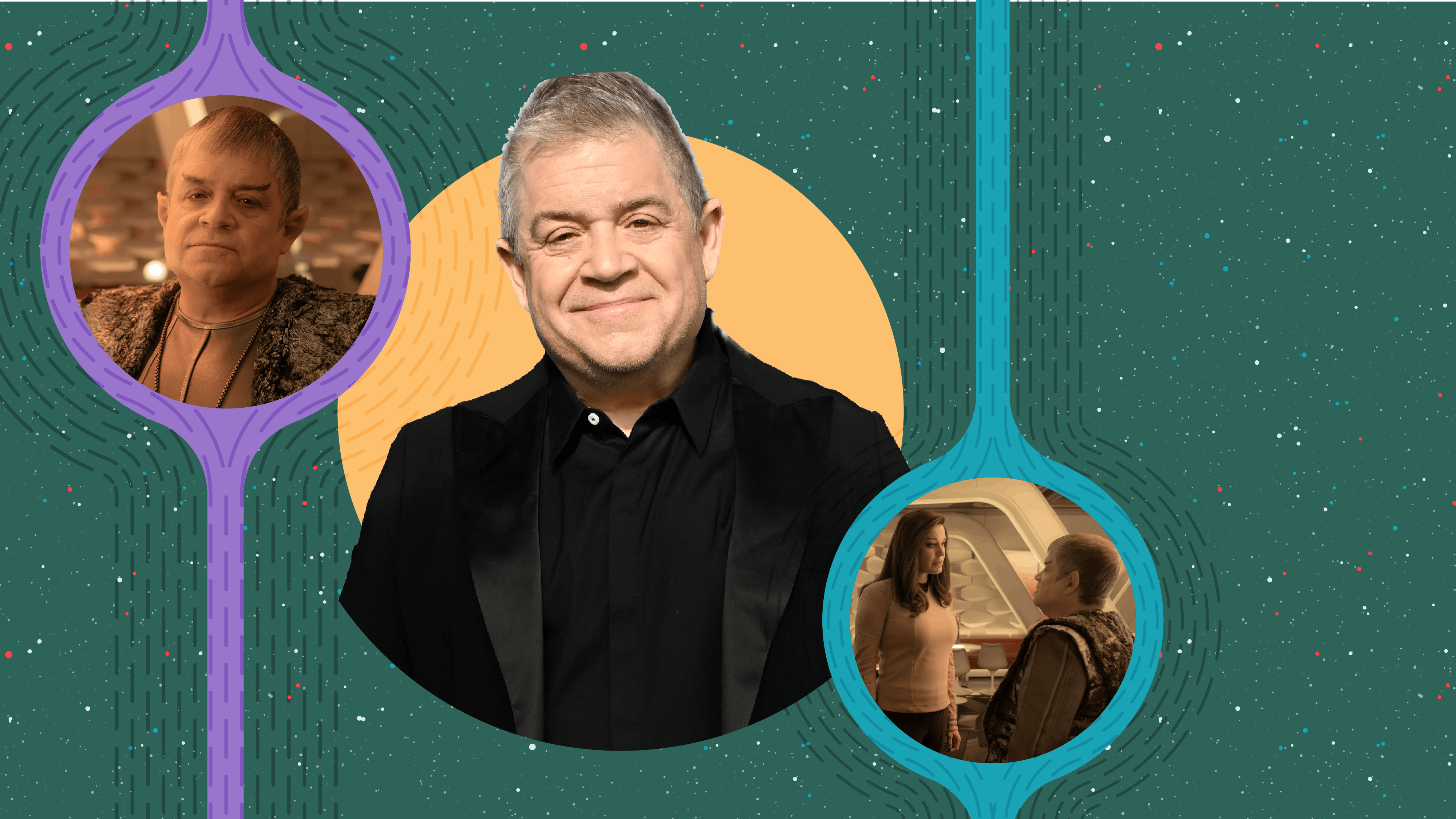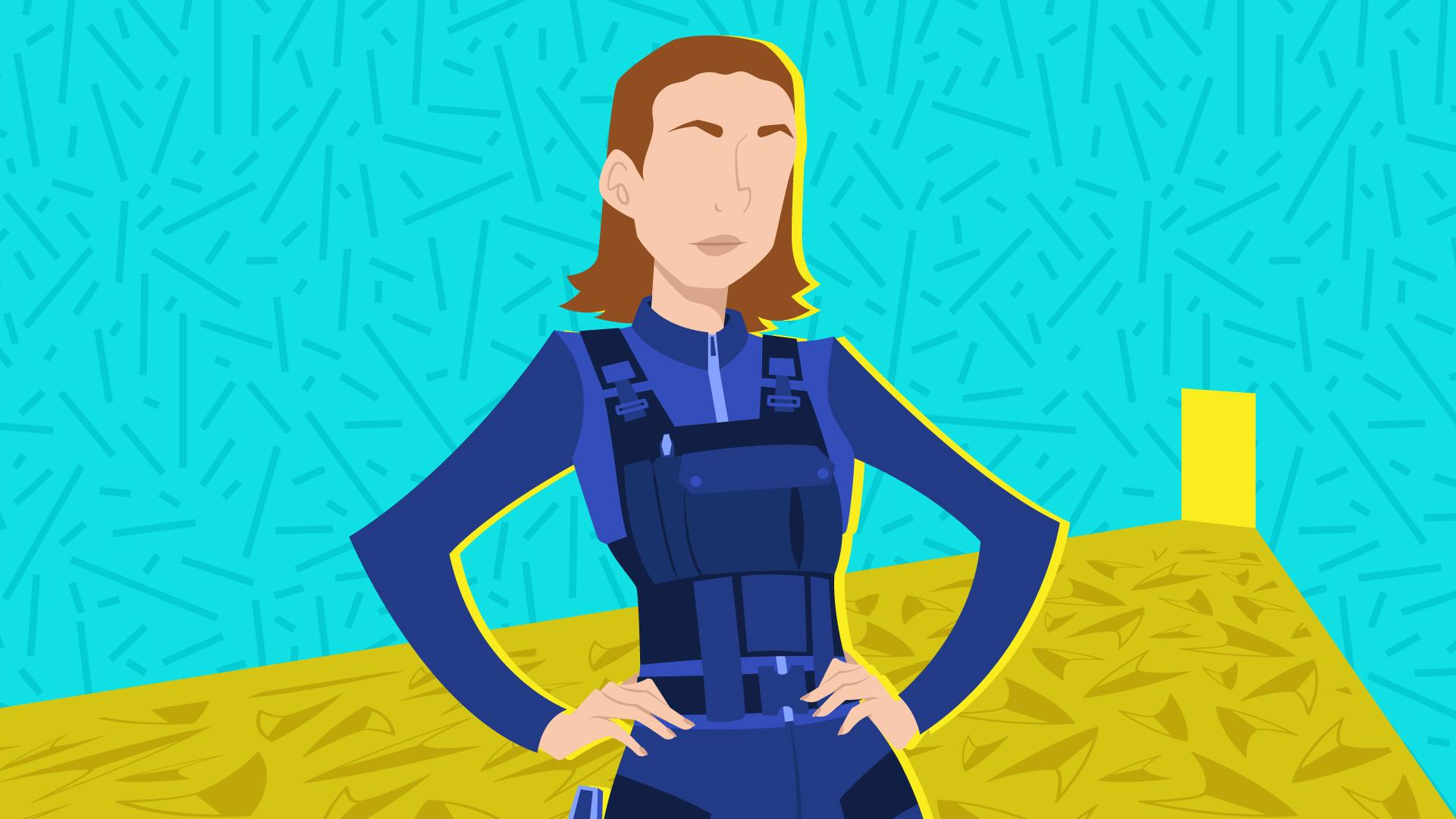Published Sep 20, 2017
EXCLUSIVE INTERVIEW: Discovery's Anthony Rapp
EXCLUSIVE INTERVIEW: Discovery's Anthony Rapp
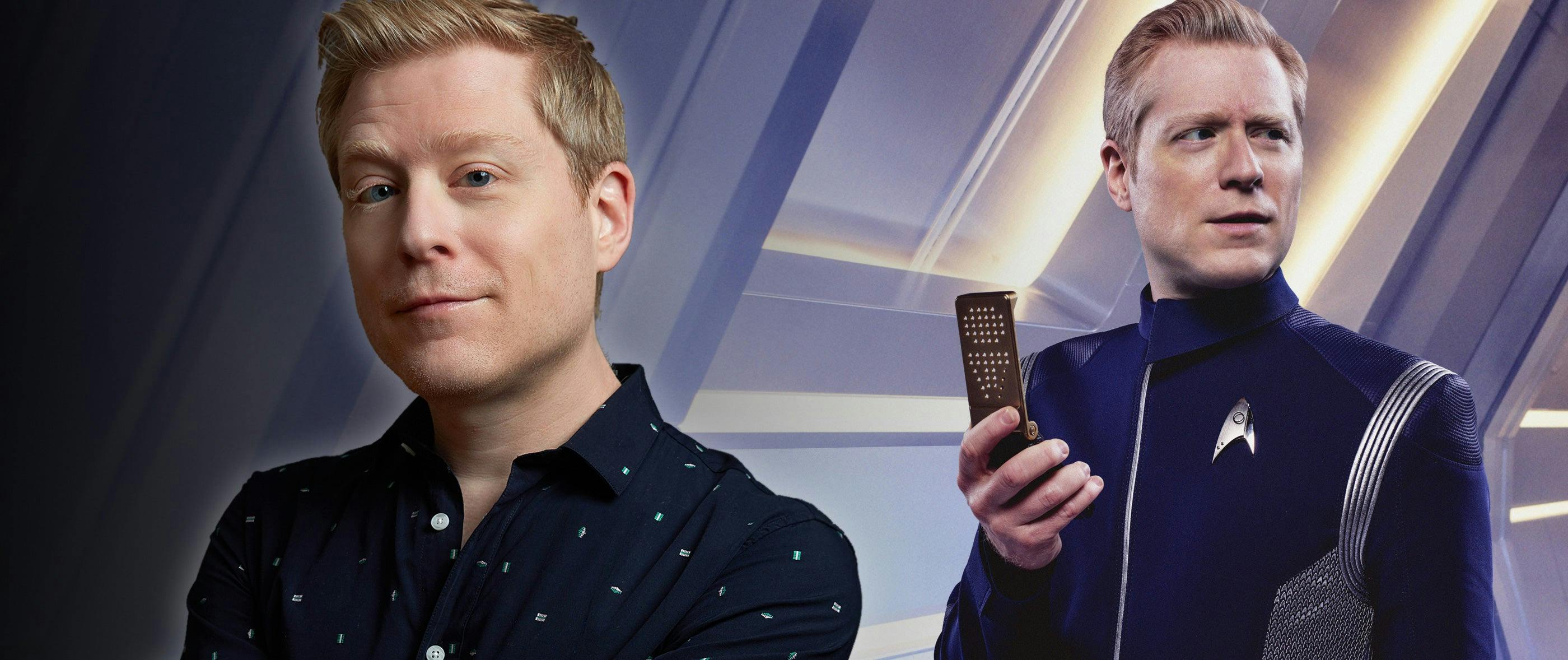
Most people, when they consider the name Anthony Rapp, immediately and understandably associate him with Broadway musicals, including You’re a Good Man, Charlie Brown, Hedwig and the Angry Inch and If/Then, as well as the landmark original production of Rent. But he’s also done his share of films and television shows, among them Adventures in Babysitting, Dazed and Confused, The X-Files, A Beautiful Mind, Law and Order: Special Victims Unit, The Other Woman, Psych and The Good Fight. To that impressive list, it’s time to add Star Trek: Discovery. The show casts the actor, who is openly gay, as Lt. Paul Stamets, who is the science officer/astromycologist aboard the U.S.S. Discovery, and is in a relationship with the ship’s doctor, Hugh Culber, played by Wilson Cruz. StarTrek.com joined several other journalists for a recent roundtable conversation with Rapp. Here’s what he had to say:
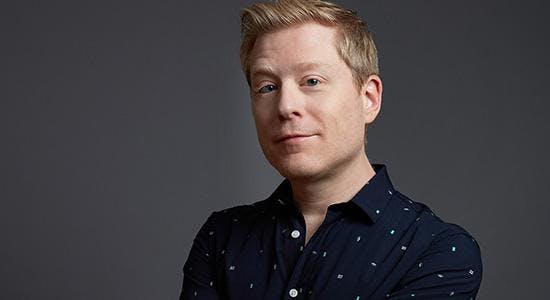
What did you know about Star Trek before coming aboard Discovery?
I watched stuff when I was a kid. I watched the first three movies in the theaters and certainly some of The Original Series on TV in re-runs after school. That was my real affiliation to it, and I saw the first J.J. reboot movie. But, always for me, it was Kirk and Spock and Khan, and the bugs that crawl in people's ears in Wrath of Khan. But I missed the rest of it because at the time, in the mid-late 80s, I was working a lot and I just wasn't watching any TV, or almost no TV. So Next Gen, Deep Space Nine, totally passed me by at the time. When I got cast in the role (on Discovery), I did a deep dive into re-watching TOS stuff and then going really deep into Next Gen, and now I've started Deep Space Nine also. My plan is to keep going all the way through and at least watch each... I'm watching like curated lists of things.
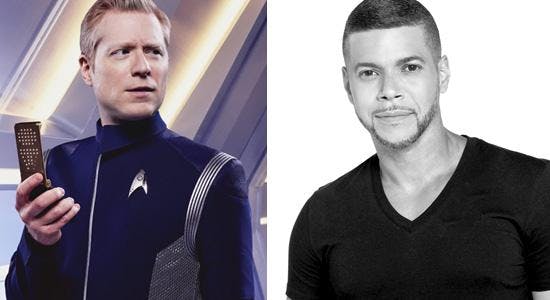
For such a progressive show, would you agree that Star Trek took a long to reach the point of including a gay couple?
I think some of it is network pressures. I don't know, honestly, what conversations were happening with producers. I don't really know. This is all pure speculation. I'm pretty sure that Frakes did go on record that he advocated for that for that non-gender character (in an episode of TNG) to express as male, though. I think, right? Or something like that. So, there were missed opportunities, you could say, but I don't... It is 12 years since the last series occurred on TV and a lot has shifted in TV, in general, since then. I just think it's a confluence of all those circumstances. For better or for worse it just has been... I think it was a blind spot probably more than anything. I don't know if it was willfully avoided. I can't speak to that.
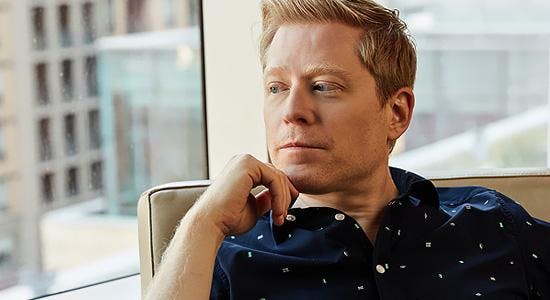
Now that it’s happening, how ready are you to represent that?
Very ready, yeah. Very ready. (Wilson Cruz and I) have both been activists, out actors, for decades, anyway. So, it's part of who we are. It feels very much in keeping with that.
The show doesn’t make a big deal about it. Stamets and Culber are just another couple…
The fact that it does exist is a big deal in the sense that it does represent something that hasn't been represented before. So, it's both things at once.
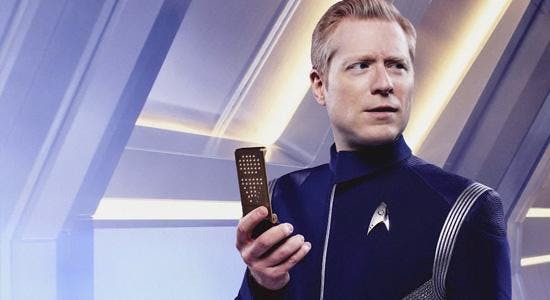
We've heard a little bit about what Burnham goes through. What is the journey that Stamets is on?
I'm wondering how much I can talk about. It's not just what I'm not allowed to, it's that I wouldn't want to… I'm like an anti-spoiler person as a consumer of culture. I think that when you first encounter me I'm a little... Stamets is super-smart and is the expert in his field, and so he encounters other people and can be a little impatient, or flinty, or short with them. So, part of the journey is getting to know these people with whom I'm first sort of like, "Who are you? What good are you to me?" And then getting to know, “Oh, maybe you are some good to me.” Seeing the evolution of my character's relationship with all these other people.
And then you also get to see the softer side in my relationship with (Hugh). More than that, I don't really want to touch on too much because it just gets into the spoilery stuff. But, this is my first time being a regular on a TV show, so I don't always know what is coming. Sometimes, I get little hints dropped, but I don't really want to know because Stamets doesn't know. I get to read along with everyone else as the scripts come in and discover, no pun intended, what's coming. And it's always felt like it rings true. It feels organic and authentic, and that's the most important thing to me.
How realistic are the sets and how much green screen are you dealing with?
We have tons of practicality to all of our environments. The only green screen, really, that I've encountered... There's a scene where I'm in the shuttle bay and I'm looking out, essentially, kind of onto the star field. That's a green screen that I'm looking at. I wish I could see the planets, for sure. But the bay itself is real. Everything is very real, the hallways, the bridge. There's not much green screen really, really at all. I've only had one and that was when I was encountering that creature, that, clearly, they could not bring in.
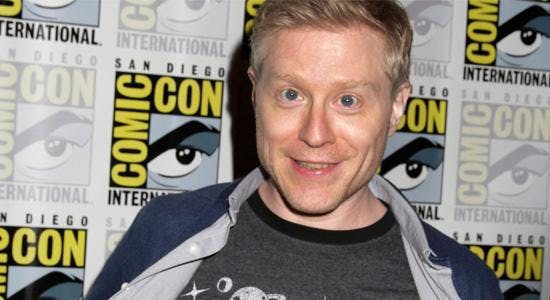
How are you managing with all the scientific dialogue, the infamous Trek technobabble?
Well, it's really not babble in the sense that all is rooted in meaning. It's not just made-up gobbledygook. It actually means something. So, that is helpful. And, of course, we have our glossaries and dictionaries and we can ask questions. I'm not saying that it's like Shakespeare in the sense that... It's not poetry like that, but you have to wrap your head around a different way of expression. So, it's similar in that sense.
You're mostly known for doing stage work. You’re previous TV was guest shots or recurring roles. How different has this TV experience been for you, in terms of the time and dialogue and speed of a series regular role on a weekly show?
The big difference is having less time with the material, getting the material sometimes a day before, two days before, three days before, or whatever, before having to download it onto my brain. But I'm developing that muscle. What one of the joys of it has been is getting to learn the journey as it goes. It's cool to do a play, or a musical, that's two hours, two and a half hours, and you know the journey. You can do A to Z every night. I love that. But I also love, sort of, really living in the unknown. I'm so grateful to be on something that has twists, and turns, colors and all that stuff.

